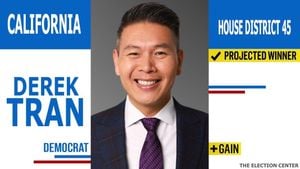Canada is seeing significant changes as several provinces roll out new cellphone bans for the 2024-2025 school year. The objective behind these bans is consistent across jurisdictions: to minimize distractions and promote safer social media engagement among students.
Teachers have voiced concerns about their role within this new framework. Many worry about receiving little guidance or support as they become responsible for enforcing these rules.
Governor Doug Ford’s Ontario has been among the provinces taking this step. The Ontario ban will not only prohibit cellphone use but also vaping, all part of the government’s larger plan to improve classroom focus.
Experts believe the heavy use of digital devices has negative impacts on students. With excessive cellphone usage, kids often face increased levels of anxiety and difficulty concentrating.
Each province has crafted its own unique approach to these cellphone policies. For example, Alberta’s teachers describe the rollout as chaotic, indicating there is considerable confusion over enforcement measures.
Meanwhile, some parents argue their children’s phones are lifelines for safety. They believe there should be clear justifications before completely prohibiting phone usage.
Policies groping toward enforcement vary vastly; the system can feel like it’s built on shaky ground. The lack of consistency across school districts makes it harder for students and teachers to know what's expected of them.
Some jurisdictions, like Manitoba, have taken decisive action against cellphone usage. The province recently enacted rules banning phones for students from kindergarten through eighth grade.
Nova Scotia has adopted guidelines mandatorily requiring phones to be kept out of view during instructional hours. The enforcement of these guidelines relies heavily on teachers, who are unsure what ramifications could arise from violations.
Not only do students risk fines, but some might even have their phones confiscated under certain circumstances. These provisions bolster the anxiety surrounding the new rules.
West Ada School District's principal commented on the positive response from his school. "The teachers have shown remarkable adaptability, and families appear to appreciate the change," he said.
At Mountain View High School, students find themselves adjusting to the new ban with designated slots for phone storage provided at the onset of the academic year. Principal Scot Montoya reported, "It's been fantastic. There’s been more engagement and less distraction among students during class time.”
Montoya feels empowered by the considerable parental and community support which he believes has made adherence to the new policy smoother. The success hinges heavily on collaboration between schools and parents, fostering unity.
The plan also involves consequences for any student caught circumventing the rules. Initially, offenders may receive just warnings, but for repeat violations, their parents would need to retrieve the devices.
Some critics argue these policies could be counterproductive and impede students’ ability to stay connected during emergencies. A number of school districts are still contemplating the extent to which students could have limited access during break times.
Traditionally, schools embraced technology to inspire learning, so implementing bans places us at odds with this progressive approach. There's an overarching sentiment questioning whether these restrictions might signal regression.
The debate over cellphone usage is about more than merely distractions; it reflects broader cultural attitudes and shifts. Policymakers must navigate this complicated terrain to create rules reflective of society’s values and needs.
Turning to neighboring jurisdictions provides useful insight; other places like California and New York have enforced similar measures with notable results. Their experiences may yield valuable lessons as Canada looks to focus on improving student engagement.
Despite varying approaches to enforcement, one thing is clear: the conversation surrounding technology’s role within education is far from over. The need for continued dialogue among stakeholders remains as various opinions emerge.
Supporters of the ban express hope it will lead to enriched learning environments free of digital distractions. Adapting classroom policies may pave the way for enhanced academic excellence moving forward.
Meanwhile, educators need tools and training as they adjust to these new policies. Open communication between policymakers, school districts, and educators will be key to successful implementation.
The shift toward banning cellphones signals not just changing norms, but highlights the growing concern about mental health and well-being among students. This issue is complex, and its impacts will continue to surface through public discourse.
Looking to the future, these cellphone bans may also face legal challenges as different stakeholders voice their opinions and concerns. Balancing regulations aimed at focusing on education with the demands for connectivity will be every district's next hurdle.
Just like social media use, the dynamics surrounding cellphone policies are still shifting. There is potential for revisiting these decisions as schools assess their impacts on student performance and psychological wellness.
Regardless of the varying district responses, the conversation around cellphone policies remains fluid. The collective focus should remain on fostering engagement, ensuring students’ needs are addressed holistically.
While the implementations are under scrutiny, all sides of the debate are equally passionate. Achieving balance through collaboration and continual assessment of the realities inside classrooms can point us toward effective solutions.



